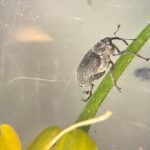A U.S. genetics firm has picked up Canadian approval for a trait it plans to use to breed non-genetically modified canola tolerant to sulfonylurea herbicides.
San Diego-based Cibus Global last week announced plant novel trait (PNT) approval from the Canadian Food Inspection Agency and Health Canada for its product, which it’s branded as SU Canola.
The company, working with Winnipeg seed distributor BrettYoung [Related story], is aiming for a “limited” commercial release for SU Canola in Canada in 2016, pending variety registration and registration for a related sulfonylurea herbicide.
Read Also

Pulse weekly: Canadian pea/lentil exports slow to start 2025/26
Canadian pea and lentil exports were down in November, with total movement of the two pulses during the 2025/26 (Aug/Jul) crop year-to-date running behind the year-ago pace, according to the latest international trade data from Statistics Canada released Jan. 29
Cibus said its new product — already available in the U.S. — will offer Canadian canola growers “sound stewardship options to deal with weed resistance resulting from overuse of current herbicide-tolerant (genetically-modified) varieties.”
Used for grassy weed control, sulfonylureas were developed by DuPont starting in 1975 and include, among others, metsulfuron, nicosulfuron, rimsulfuron, thifensulfuron and tribenuron, all falling within herbicide Group 2, the ALS/AHAS inhibitors.
Sulfonylurea-tolerant crops have also long since been developed, such as soybeans, cotton and the ill-fated genetically-modified (GM) flax CDC Triffid, which was developed to tolerate soil residues of those herbicides. [Related story]
Given other GM and non-GM herbicide-tolerant canolas already on the market, Cibus’ SU Canola “gives farmers another option” and a “one-pass solution” in their crop and herbicide rotations, said Peter Beetham, a company co-founder and vice-president for research and development.
As an example, Beetham pointed to Manitoba, where soybeans are an expanding crop option, but growers “can’t rotate Roundup Ready soybeans with Roundup Ready canola.”
“Elegant approach”
Cibus’ Rapid Trait Development System (RTDS), which “avoids the introduction of foreign genetic material into plants by mimicking natural methods in a highly targeted way” is recognized as a non-GM mutagenesis technique. Cibus, Beetham said, considers RTDS “a much more elegant and, we think, acceptable approach” to crop trait development.
SU Canola’s Canadian approvals are particularly significant, he said, because “very few small companies have been able to negotiate through the trait registration process in Canada.”
However, the company also hailed the “rigorous” nature of the Canadian assessment process, by which new plants with novel traits can be deemed as safe as other conventional plant varieties already grown in Canada for food, feed and unconfined environmental release.
To develop herbicide pairings for use with SU Canola, Cibus has partnered with Rotam CropSciences, a Hong Kong company distributing ag chemicals internationally.
Rotam is to provide sulfonylurea-based products which Cibus expects to be timed for release alongside SU Canola’s limited launch in Canada, Beetham said.
Patent protection on sulfonylureas is expired and companies such as Nufarm, Arysta and Loveland have since launched off-patent products in Canada with sulfonylurea actives. The herbicides’ original developer, DuPont, still markets most sulfonylurea products available in Canada today.
Rotam, which announced its partnership with Cibus in 2010 to develop herbicides for use with RTDS-based canolas, at that time hailed the agreement partly for what’s expected to be “the debut of Rotam-branded products targeting the Canadian market.”
“We are confident that we will exceed the expectations of farmers in Canada,” Thomas Chavez, Rotam’s country manager, said in a release at the time.
Beetham noted Cibus is interested in bringing its canola products to all global markets, including China, India, Australia and European countries, and also aims to add further traits, such as disease tolerance, to its canola portfolio.
The company, he added, is also working with the Flax Council of Canada toward a new herbicide-tolerant flax, for which it hopes to have materials ready for the Canadian PNT approval process by the end of this year. [Related story]
— AGCanada.com Network
















